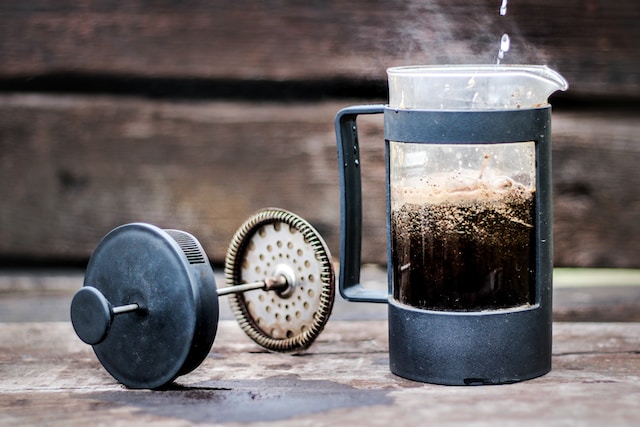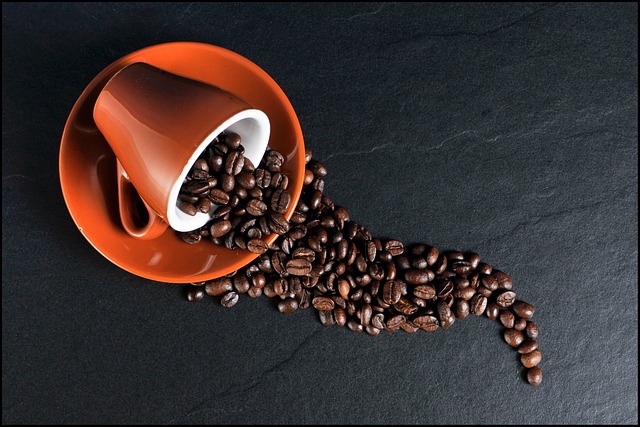Best Temperature For French Press Coffee
There are some affiliate links below, but they are all products I highly recommend. For more info, view my disclosure here.
The French press method, known for its robust flavor and simplicity, is a beloved choice among coffee connoisseurs globally. One vital aspect that significantly influences the quality and taste of French press coffee is the water temperature. But what’s the best brewing temperature for French press coffee?
It walks a fine line— too hot, and you risk over-extraction, too cold, and your brew may taste under-extracted and weak. This article explores this intricate balance to guide you to the perfect temperature for brewing a delightful cup of French press coffee.
Understanding the Ideal Temperature
According to the National Coffee Association, the ideal water temperature for brewing most coffee varieties is between 195 and 205 degrees Fahrenheit. This temperature range, slightly below the boiling point, is critical to the extraction process. It enables the hot water to penetrate the coffee grounds fully and extract the oils and flavors that give coffee its distinctive taste. When the water temperature falls on the lower end, it might result in a brew that tastes flat and under-extracted, lacking the rich depth associated with French press coffee. On the other hand, using water at a higher temperature could lead to over-extraction, which often results in a bitter and unpleasant taste.
The Impact of Grind Size and Coffee Beans
The grind size and the type of coffee beans you use play significant roles in determining the taste of your coffee. When using a French press coffee maker, it is generally advised to go for a coarse grind. This is because a finer grind might seep through the mesh filter, leading to gritty coffee. Lighter roasts, being denser, often require higher brewing temperatures than dark roasts.
But remember, coffee brewing is an art as much as it is a science. There’s room for experimentation. Don’t hesitate to try different beans, grind sizes, and temperatures to discover what suits your palate the best.

Brewing Process and Brew Time
The brewing process begins with preheating your French press or coffee press with hot water. This step is essential to keep your coffee hot for a more extended period. After preheating, discard the hot water and add the coffee grinds into the press pot. For consistency in your coarse grind size, using a burr grinder is recommended.
When you’re ready to brew, pour hot water (maintaining the ideal temperature) onto the coffee bed, just enough to wet all the grounds. Gently stir with a wooden spoon, then let it sit for about 30 seconds. This method, referred to as “blooming,” allows the coffee to release its aromatic oils and volatile compounds, enhancing the flavor of the final brew.
After this brief pause, pour in the rest of the water and let it steep. The perfect brew time for French press coffee is approximately four minutes, but feel free to adjust this to your taste.
Importance of Coffee-to-Water Ratio and Water Quality
The coffee-to-water ratio and the quality of water you use can drastically affect the taste of your coffee. A good starting point for the coffee-to-water ratio is 1:15 (for every gram of coffee, use 15 grams of water). However, this can be adjusted according to your personal preference for a stronger or weaker cup.
For the best French press coffee, it is recommended to use filtered water instead of tap water. The impurities and chlorine commonly found in tap water can interfere with the taste of the coffee, leading to a less-than-ideal brew. As for ensuring the best water temperature, a kitchen thermometer can be a handy tool if your kettle doesn’t have temperature settings.
Cold Brew Coffee and French Press Coffee Maker
Did you know your French press coffee maker is versatile enough to make not only hot coffee but also cold brew coffee? In this method, instead of hot water, you use room temperature or cold water, and let the coffee steep for a longer time—usually 12 to 24 hours. The result is a coffee brew that’s smooth, full-bodied, and less acidic than its hot counterpart. Remember to use a coarser grind for this method as it helps avoid over-extraction over the extended brewing time.
Grasping the nuances of the ideal brewing temperature for French press coffee can significantly upgrade your at-home coffee experience. The interplay between the type of beans, the grind size, the right temperature, and the correct brewing time can help you brew a perfect cup that resonates with your taste buds.
The next time you reach for your French press, remember these insights and take your coffee brewing game to the next level. From hotter water for a stronger brew to cold brew coffee for a refreshing change, the French press caters to every coffee aficionado’s preferences. Happy brewing, and here’s to many more cups of your best coffee yet!
Read Next: Eco-Friendly Ways to Put Old Coffee Grounds to Good Use





